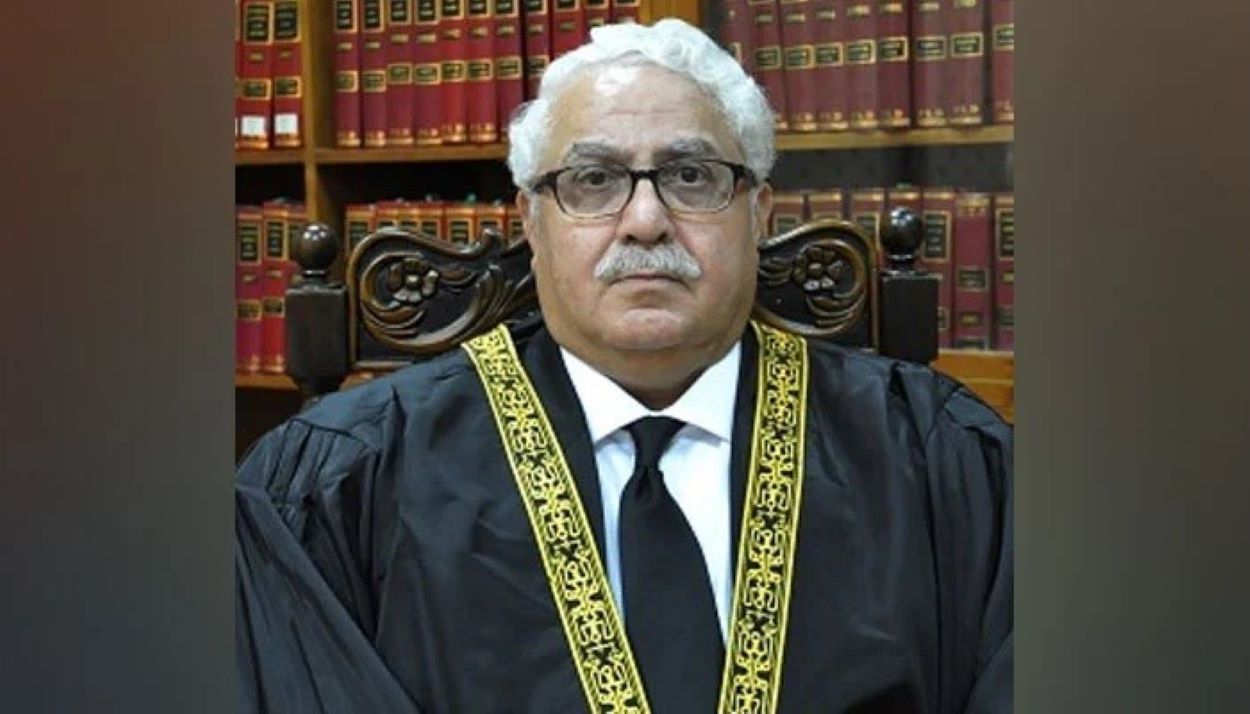President Dr Arif Alvi has accepted the resignation of Supreme Court’s Justice Mazahar Ali Akbar Naqvi, as announced in a statement from his office. The resignation, tendered under circumstances widely known and partially on public record, follows misconduct complaints against Justice Naqvi.
The official acceptance came after a press release from the President’s House, noting the prime minister’s advice under Article 179 of the Constitution. Justice Naqvi, originally from Gujranwala, had been elevated to the Supreme Court on March 16, 2020.
In his resignation letter, dated January 10, 2024, Justice Naqvi expressed his inability to continue serving due to prevailing circumstances. He conveyed his relief, lamenting the denial of his right to be heard and the dismissal of his 24 applications. Justice Naqvi criticized the consolidated opposition he faced, leading to his disillusionment with the expected administration of justice.
Justice Naqvi was under a Supreme Judicial Council (SJC) inquiry over allegations of misconduct, which had intensified after the rejection of his request to stay the proceedings. He described the treatment by the SJC as “disgraceful” in a letter to the Chief Justice of Pakistan and other top court judges.
The Supreme Judicial Council’s Inquiry and Proceedings
The SJC initiated inquiries against Justice Naqvi early last year following an alleged audio leak. The SJC issued a show-cause notice to Justice Naqvi in October regarding 10 complaints. The council, headed by Chief Justice Qazi Faez Isa, included several other notable judges. Justice Naqvi challenged the proceedings, citing serious prejudice and questioning the authority and impartiality of certain council members.
Despite his challenges and submissions, the SJC maintained its stance, issuing a fresh show-cause notice and setting response deadlines. Justice Naqvi consistently contested the allegations, deeming them “absolutely and maliciously false”. His attempts to quash the revised show-cause notice and requests for additional documents highlighted the contentious nature of the proceedings.
On January 8, Justice Naqvi withdrew his objections to the three-judge bench hearing his challenge against the show-cause notice. However, the apex court’s refusal to stay the SJC proceedings, coupled with Justice Ahsan’s criticisms of the council’s methods, underscored the complexity and sensitivity of the case. Justice Ahsan’s letter to the SJC members highlighted concerns over the lack of debate and the hasty nature of the proceedings, casting doubt over the entire process.
In conclusion, the resignation of Justice Naqvi, amidst a backdrop of controversy and legal challenges, marks a significant event in Pakistan’s judicial landscape, raising questions about judicial proceedings and the treatment of misconduct allegations within the highest echelons of the judiciary.






